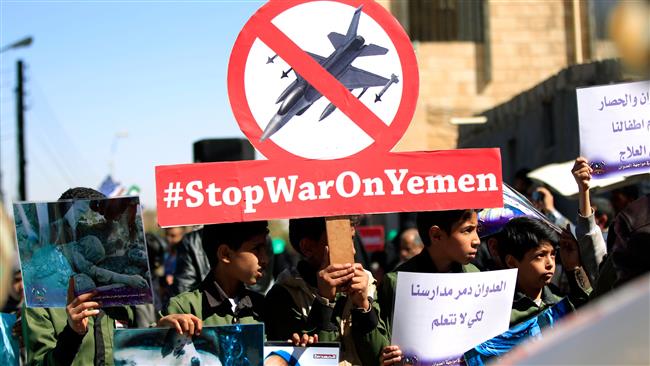
20 December 2017 marked the 1,000th day of the brutal war on Yemen. The coalition led by Saudi Arabia and the United Arab Emirates (UAE) has launched millions of pounds worth of advanced weaponry against the Houthi insurgency in the west of the country since the war began in 2015. Despite major military asymmetry, it has failed to make decisive progress. In November 2017, several missiles were launched by the Houthis at the Saudi royal palace in Riyadh. Following this, the coalition launched a total blockade to attempt to starve the Houthis and their allies into submission. The country has been devastated by this war, with the UN calling the situation ‘the world’s worst humanitarian crisis’ and charities and NGOs increasingly speaking out against the coalition’s actions. Despite some empty words condemning the blockade and promising aid, the war continues to have the full support of British and US imperialism. Arms sales, military support, and diplomatic invitations continue to flow to Saudi Arabia, one of British and US imperialism’s primary partners in the war to reshape the Middle East and fight the rising influence of Iran.
At least 10,000 people have so far been killed by the war, with thousands more dying of starvation, cholera and other diseases caused by the bombardment and blockade. The cholera epidemic in the country is the world’s worst ever recorded outbreak. One million people have been infected so far – mainly children. This comes alongside a new outbreak of diphtheria. The complete blockade was launched on 6 November. The UN estimated on 16 January that three-quarters of Yemen’s 29 million people are facing starvation or rely on humanitarian aid to survive. Jamie McGoldrick, the UN’s humanitarian coordinator for Yemen, explained on 30 November: ‘150,000 Yemeni children [are] on the brink of starvation because of the impact of this blockade.’
On her visit to Saudi Arabia in November, British Prime Minister Theresa May condemned the new blockade, followed by US President Donald Trump. However, May announced no real action to end it and in a statement following the meeting, the government made clear that: ‘the relationship between the UK and Saudi Arabia was strong and would endure.’ Saudi Crown Prince Mohammed Bin Salman – the architect of the war – is due to visit Britain in 2018. Foreign Secretary Boris Johnson met with the UAE crown prince in Abu Dhabi on 10 December, where he ‘underlined the depth of strategic relations between the two countries and his country’s keenness on enhancing bilateral cooperation’*. An increase in British aid to Yemen was announced in November, but as Oxfam explained, despite Britain and the US being major humanitarian donors to Yemen, they have made ‘four times the amount of the Yemen 2017 UN appeal’ in arms sales to the countries involved (19 December). Saudi Arabia is Britain’s biggest trading partner in the Middle East, and $4.4bn of arms sales have been agreed with the country since 2015. A War Child report released on 19 September 2017 revealed that since the war began British arms companies, including BAE Systems and Raytheon, have secured revenues exceeding $8bn from deals with Saudi Arabia, with estimated profits of up to $775m. Britain received corporation tax income from these sales estimated at $13m in 2016. Former Defence Secretary Michael Fallon stated in Parliament in October 2017 that ‘criticism of Saudi Arabia in this Parliament is not helpful’ in securing a BAE Systems deal to sell the country £4bn worth of Typhoon fighter jets (Independent, 25 October).
Other imperialist powers have taken more action to stop the war. On 3 January Norway announced it was suspending all arms sales to the UAE. Germany, which had quintupled arms sales to Saudi Arabia and Egypt between 2016 and 2017, was forced on 22 January to announce a halt to all arms sales to coalition partners in the war on Yemen, as a result of pressure from smaller parties in talks to form a new coalition government.
The people of Yemen have found themselves on one of the front lines in the global war over the Middle East. The country’s importance as one of the major populated areas of the Arabian peninsula, with the key port of Aden, arable land and transit routes, can be seen by struggles in the region for decades – notably the brutal war against the South Yemeni liberation struggle in the 1960s by the British colonial Labour government. Today, along with Syria, Lebanon and Iraq, Yemen is one of the major battlefields where the growing influence of Iran is being contested by imperialism and its regional allies and proxies. The UN has accused Iran of providing weapons to the Houthis and breaching the arms embargo – something that Iran denies. Fault lines are present in the opposing sides in the war in Yemen. Both the UAE and Saudi Arabia are seeking to establish footholds in Yemen to extend their power in the region and clashes have broken out between allied Saudi and UAE troops. On the other side, former Yemeni President Ali Abdullah Saleh was killed in December 2017 after switching sides from the Houthis to join the Saudi-led coalition.
On 20 December, after mounting criticism, Saudi Arabia agreed to open the port of Hodeidah for 30 days to ease the blockade, and on 22 January announced $1.5bn of humanitarian aid in response to the UN’s unprecedented $3bn appeal for assistance to Yemen. While the coalition continues to rain down British and US bombs on the people of Yemen, no amount of humanitarian aid can stave off devastation. In the Houthi resistance, the Saudi-led coalition and their imperialist backers have met a determined opponent to their plans of strategic dominance.
Toby Harbertson
*Dan Glazebrook, Middle East Eye, 19 December 2017.




